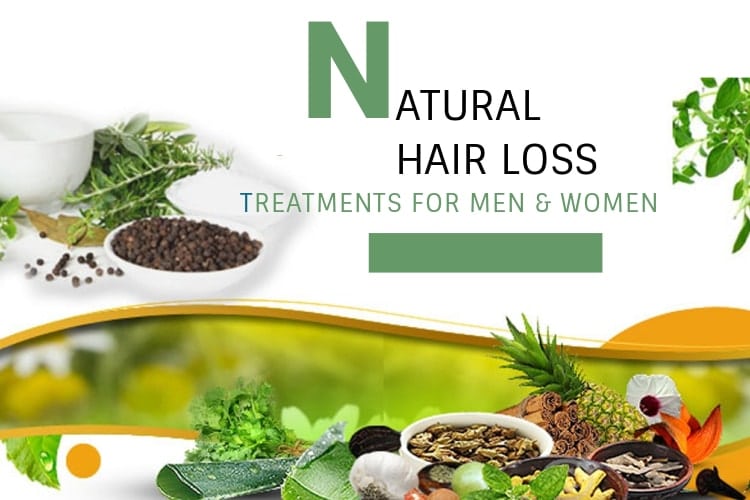
Hair Loss and Hair Thinning in Women FAQs | Including Some of The Most Effective Treatments
Table of Contents
- What are the causes of hair loss and hair thinning in women?
- Family history (heredity)
- Hormonal changes and medical conditions
- Medications and supplements
- Radiation therapy to the head
- A very stressful event
- Certain hairstyles and treatments
- Age
- Signs of female hair loss
- Common causes of female hair loss
- Emotional impact
- How many women suffer?
- Male hair loss
- Signs of male hair loss
- Common causes of male hair loss
- Emotional impact
- How many men suffer?
- What are some of the most effective treatments/strategies for women with hair loss?
- Saw Palmetto
- Biotin
- Pumpkin Seed Extract
- Caffeine
- Green Tea Extract
- Black Cumin Oil
- Pygeum Bark Extract
- Black Seed Oil
- Pisum Sativum (Pea) Extract
- Pumpkin Seed Oil
- Cayenne Fruit Extract
- Jojoba Oil
- Minoxidil
- Hair transplantation
- Low-level laser therapy
- Iron supplements
- Coconut Oil Massage
- Corticosteroids
- Aloe Vera
- Better Blood Circulation
- Hormone Replacement Therapy
- What products do you recommend for women with hair loss and why?
What are the causes of hair loss and hair thinning in women?
Hair loss is typically related to one or more of the following factors:
Family history (heredity)
The most common cause of hair loss is a hereditary condition called male-pattern baldness or female-pattern baldness. It usually occurs gradually with aging and in predictable patterns — a receding hairline, bald spots in men, and thinning hair in women.
Hormonal changes and medical conditions
Various conditions can cause permanent or temporary hair loss, including hormonal changes due to pregnancy, childbirth, menopause, and thyroid problems. Medical conditions include alopecia areata (al-o-PEE-she-uh ar-e-A-tuh), which causes patchy hair loss, scalp infections such as ringworm, and a hair-pulling disorder called trichotillomania (trik-o-til-o-MAY-nee-uh).
Medications and supplements
Hair loss can be a side effect of certain drugs, such as those used for cancer, arthritis, depression, heart problems, gout, and high blood pressure.
Radiation therapy to the head
The hair may not grow back the same as it was before.
A very stressful event
Many people experience a general thinning of hair several months after a physical or emotional shock. This type of hair loss is temporary.
Certain hairstyles and treatments
Excessive hairstyling or hairstyles that pull your hair tight, such as pigtails or cornrows, can cause a hair loss called traction alopecia. Hot oil hair treatments and permanents can cause hair follicular inflammation, leading to hair loss. If scarring occurs, hair loss could be permanent.
How does hair loss in women differ from hair loss in men? How does it typically manifest in women?
Female hair loss
Age
It can begin as early as the 20s and 30s but is most common for women aged 45 – 55. 50% of women experience hair loss by age 50.
Signs of female hair loss
Thinning of hair in the middle area of the scalp or a slow widening of the part.
Common causes of female hair loss
Androgenetic alopecia, telogen effluvium, hormone changes after menopause, stress, nutrition.
Emotional impact
More difficult for women as hair loss is tied to femininity and beauty. Women can feel less attractive with hair loss.
How many women suffer?
Thirty million women experience hair loss, making up 40% of hair loss sufferers in the United States.
Male hair loss
Age: May start as early as their teens, but more aggressive hair loss happens in their 40s and 50s.Two-thirds of American men experience hair loss by age 35.
Signs of male hair loss
It starts with a receding hairline and thinning of hair around the crown.
Common causes of male hair loss
Androgenetic alopecia and telogen effluvium, stress, nutrition.
Emotional impact
In some senses, it’s more socially acceptable for a man to have hair loss or be bald. However, men can also feel shame as the hair is tied to masculinity and strength.
How many men suffer?
Fifty million men experience hair loss.
Can hair loss be reversed or simply managed?
Both.
What are some of the most effective treatments/strategies for women with hair loss?
Saw Palmetto
Multiple studies established saw palmetto’s ability to encourage optimal hair growth by targeting DHT, the main culprit of genetic hair loss.
Biotin
An essential B-vitamin that promotes healthy hair growth and overall hair health. This ingredient strengthens both the hair follicle and the hair shaft, from which the hair grows.
Pumpkin Seed Extract
Studies establish that pumpkin seed extract stimulates healthy hair growth by suppressing the harmful effects of DHT and increasing circulation to the scalp.
Caffeine
Studies establish that caffeine stimulates hair follicles to grow thicker and stronger hair.
Green Tea Extract
Studies establish that green tea extract is rich in polyphenols. Polyphenols stimulate hair follicles, improve hair anchoring and promote stronger, healthier-looking hair.
Black Cumin Oil
Black seed oil is rich in antioxidants and fatty acids that can strengthen the hair and improve scalp health.
Pygeum Bark Extract
Studies establish that this extract stimulates circulation to the scalp and helps vital nutrients reach hair follicles where needed.
Black Seed Oil
Black seed oil is rich in antioxidants, and studies establish fatty acids strengthen hair.
Pisum Sativum (Pea) Extract
Studies establish that this extract contains a high concentration of isoflavones that positively influences the appearance of healthier and thicker-looking hair.
Pumpkin Seed Oil
Pumpkin seed oil can contain phytosterol beta-sitosterol. Studies establish that it reduces the damage caused by DHT.
Cayenne Fruit Extract
Studies establish that capsaicin stimulates blood circulation and provides necessary nutrition to the hair follicles, supporting the growth of healthier, thicker, and more voluminous hair.
Jojoba Oil
Jojoba Oil, Almond Oil, Shea Butter, Sunflower Oil
Minoxidil
Minoxidil’s use for pattern baldness was discovered by accident. Minoxidil was widely used to treat high blood pressure, but researchers found that one of the drug’s side effects was hair growth in unexpected areas.
Minoxidil lotion is applied to the scalp and may work by increasing blood flow, and therefore nourishment, to the hair follicles. The American Hair Loss Association says that most experts agree that Minoxidil is “a relatively marginally effective drug in the fight against hair loss.”
The treatment has zero effect on the hormonal process of hair loss, and its benefits are temporary. Hair loss continues if usage is discontinued.
Hair transplantation
This involves harvesting follicles from the back of the head that are DHT resistant and transplanting them to bald areas. A surgeon will remove minuscule skin plugs containing a few hairs and implant the plugs where the follicles are inactive. Around 15 percent of hairs emerge from the follicle as a single hair, and 15 percent grow in groups of four or five hairs.
At the end of the procedure, the person will still have the same amount of hair – it will just be distributed more evenly around the scalp. Treating hair loss through a surgical procedure can be painful and expensive. There is also a risk of scarring and infection.
Low-level laser therapy
Low-level laser therapy (LLLT) is a light and heat treatment form. LLLT has been shown to stimulate hair growth in both men and women. Researchers hypothesize that the main mechanisms involved in the process are stimulating epidermal stem cells in the follicle and shifting the follicle back into the growth phase of the cycle.
Iron supplements
Iron deficiency could be a cause of hair loss in some women. Your doctor may test your blood iron level, particularly if you’re a vegetarian, have a history of anemia, or have heavy menstrual bleeding. If you have iron deficiency, you will need to take a supplement that may stop your hair loss. However, if your iron level is average, taking extra iron will only cause side effects, such as stomach upset and constipation.
Coconut Oil Massage
You can heat some coconut oil and use it to massage the scalp with your fingertips. This is beneficial in increasing the blood flow to hair follicles, thereby strengthening and conditioning them. Some studies have shown that scalp massages can promote hair growth in certain individuals, whereas some proved otherwise.
Corticosteroids
Corticosteroid medicine or shots contain a type of hormone in it. [6] They suppress the immune system and thereby help in getting rid of alopecia areata
Aloe Vera
Aloe Vera contains various enzymes that help in the healthy growth of hair. Either you can directly apply the Aloe Vera juice/gel on your scalp or you can take one teaspoon of Aloe Vera on an empty stomach. One of the enzymes it contains, proteolytic, helps repair all the dead skin cells on the scalp. Aloe vera can also be a conditioner for smooth and shiny hair. Not just that, it also controls dandruff and itching and also promotes hair growth.
Better Blood Circulation
It is essential to keep blood and oxygen flowing to all body parts. However, many people with bad circulation find that their scalp cells die, so hair will stop growing. Therefore, it is essential to stimulate your blood circulation and maintain proper levels of iron in your body. Iron deficiency is anemia, and without iron, you cannot produce red blood cells. Along with iron, it is vital to stimulate the skin surface, which draws blood to the area and stimulates hair growth and life in the follicle cells. Scalp massage is one of the best ways to create this beneficial blood flow. However, if your hair loss tends to come in clumps when it is rubbed (with a brush or while shampooing your hair), you might not want to massage too often since it will only exacerbate the hair loss.
Hormone Replacement Therapy
Estrogen/Progesterone
Also known as hormone replacement therapy (HRT) and commonly prescribed in menopause, estrogen and progesterone pills and creams are probably the most common systemic treatment for androgenetic alopecia for women in menopause or whose estrogen and/or progesterone are lacking for other reasons.
What products do you recommend for women with hair loss and why?

I highly suggest Hair Restore Shampoo and conditioner by Hair Restoration Laboratories.
My husband and I have been using Hair Restore Shampoo and conditioner by Hair Restoration Laboratories for almost two months. I usually don’t mention products in my articles, but after using them for a month, my husband and I noticed a significant change.
I noticed that my hair became thicker, and the regrowth speed increased. I also noticed that my hair was much silkier and smooth. It also had a nice shine to it.
Before, my hair was not growing as fast and was not as thick. It was also brittle and broke quickly. I don’t have any of these problems now.
My husband noticed regrowth. He’s been very excited about this and uses both the shampoo and conditioner daily.

















